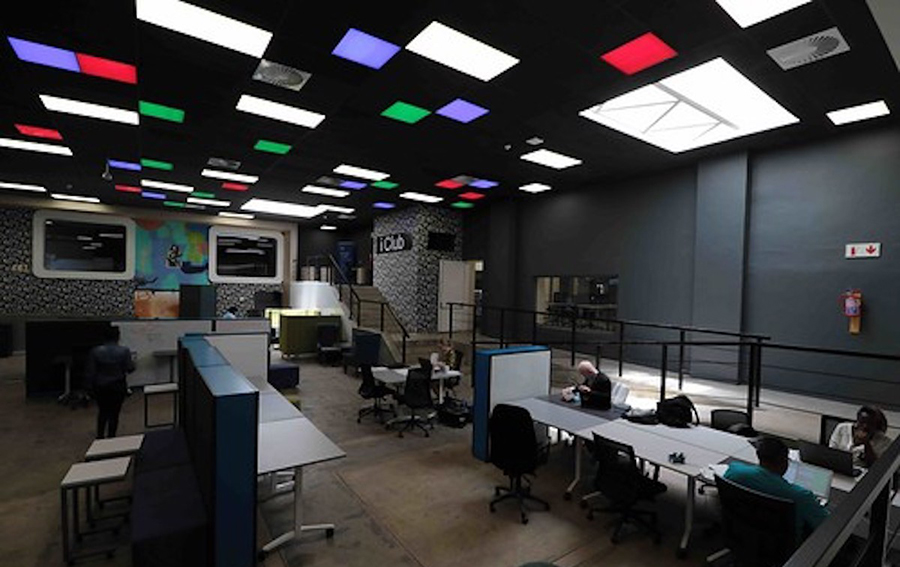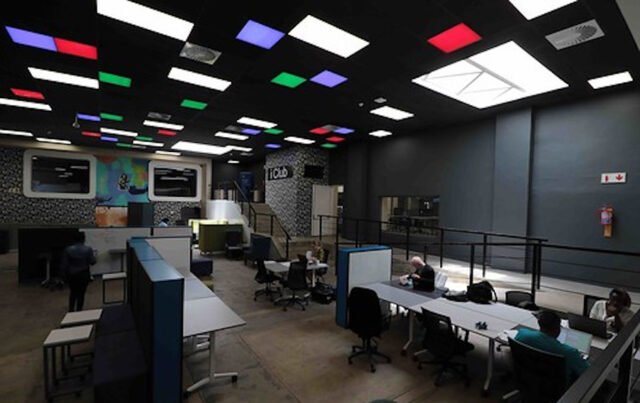Nigeria is quietly stepping onto the global innovation stage. In recent years, Tech Hubs across the country have transformed from novelty spaces into powerful engines of growth, creativity, and startup success. In this article, we explore why tech hubs in Nigeria are becoming the next innovation frontier, uncovering their impact on jobs, technology, and socio‑economic development.
Table of Contents

A New Era of Growth in Nigeria
In Nigeria today, from Lagos and Abuja to Ilorin and beyond, tech hubs are reshaping the narrative of technology and entrepreneurship. Not long ago, innovation was tightly grouped in major cities—but today, the frontier is expanding. What once might have felt like ambitious dreams in urban centres now pulse through rural towns and semi‑urban districts. Indeed, why tech hubs in Nigeria are becoming the next innovation frontier comes down to transformative change: decentralisation, opportunity, and resilience.
Clusters Where Innovation Happens: Lagos & Yaba
No conversation is complete without mentioning Yaba, Lagos—nicknamed “Silicon Lagoon”. Here stands Co‑Creation Hub (CcHub), founded in 2010 and officially opened in 2011. Located in Yaba, it has incubated well‑known companies like Paystack, LifeBank, and BudgIT, and is strongly tied to local innovation growth. These tech hubs provide mentorship, coworking, funding, and structured incubation that elevate social‑impact and tech startups alike.
Dealroom recently named Lagos the world’s top emerging tech hub, with many successful fintech firms like Moniepoint, Flutterwave, PiggyVest, and Paystack emerging from this lively ecosystem. These success stories underline why tech hubs in Nigeria are becoming the next innovation frontier—Lagos gives scale and visibility.
Beyond Lagos: Expansion across Regions
Nigeria’s innovation frontier is no longer confined to coastal cities. Government and private sector investments are driving new hubs across the federation:
- Ilorin Innovation Hub in Kwara State is one of West Africa’s largest innovation spaces, accommodating over 1,000 users and built through a partnership between IHS Nigeria, the Kwara State government, CcHub, and Future Africa. It targets sectors like agri‑tech, AI, energy and entrepreneurship, with aspirations to create thousands of jobs.
- In 2025, TETFund announced plans for 48 innovation/entrepreneurship hubs across Nigerian tertiary institutions—12 already delivered, with 18 more in procurement and another 18 planned within the year.
- Even remote and rural areas are getting into the picture. New mini‑hubs in villages and smaller towns now focus on grassroots tech education, agri‑solutions, off‑grid energy and mobile tools for health and farming.
These expansion moves show that tech hubs are spreading their reach, making Nigeria a truly national innovation frontier.

Real‑World Impact: Jobs, Investment and Youth Empowerment
So, how exactly are these tech hubs powering Nigerian lives?
Job Creation & Youth Employability
According to earlier research, by 2019 Nigeria had more than 77 tech‑hubs, each employing between five and ten people—creating hundreds of direct jobs and even more indirectly through scale‑ups. Many hubs offer gig‑economy training, digital freelancing opportunities, and seed programs, enabling youth to build businesses that employ their communities.
Investment Attraction
Support from tech hubs helps startups attract both local and global capital. For instance, a majority of Nigerian fintech VC funding is channelled through companies emerging from Lagos‑area hubs. The urban clusters create angel networks, investor meetings and demo days that energise growth.
Digital Skills & Sovereignty
The federal 3MTT (Three Million Technical Talent) programme, managed through NITDA and launched in 2023, is training millions of young Nigerians in digital skills like AI, software development, UI/UX and cybersecurity—curricula frequently delivered via local technology learning hubs. These efforts help build domestic digital capacity rather than relying on importing talent.
Innovation for Local Challenges
Perhaps the clearest reason why tech hubs in Nigeria are becoming the next innovation frontier is that they nurture solutions rooted in local realities:
- Rural hubs, like those run by Fantsuam Foundation or Roar Nigeria Hub in Nsukka, prototype drones for agriculture, fintech tools for small‑scale farmers, or offline learning tools for schools with poor electricity.
- Urban hubs also incubate healthtech, edtech, civic tech and green‑energy startups. Many localised problems—from blood distribution to civic transparency and urban logistics—are being tackled by innovators nurtured inside tech hubs.
Beyond technology, rural outreach encourages female participation and social inclusion. In many villages, women trained in digital tools now earn incomes, uplift families, and spark new entrepreneurs in their communities.
Governance, Policy & Institutional Support
The rapid growth of tech hubs is not accidental—it’s supported by frameworks and institutional momentum:
- Federal and state governments, through agencies like NITDA and TETFund, actively promote digital hubs and research‑driven innovation centres.
- Advocacy by hubs and partners helped shape the Nigeria Start‑up Act, easing regulatory burdens, creating accelerator‑friendly policies, and bringing startup dialogue to the heart of policy‑making.
- Multi‑sector collaborations with NGOs, international agencies, and private investors offer mentorship, infrastructure grants, and capital, supporting hubs to scale even in remote areas.
Challenges Along the Way
Of course, the road isn’t without bumps:
- Infrastructure remains weak: Lagos still lacks integrated large‑scale tech campuses, adequate transport, power, or affordable workspace—despite being hailed as a top global emerging tech hub.
- Funding downturn: Nigerian VC deals declined by about 7 % in 2024, affecting early‑stage fintechs and startups outside Lagos’ clusters.
- Regulatory uncertainty and brain drain: Some entrepreneurs report pushing abroad due to living difficulties in Nigeria, threatening talent retention inside local hubs.
- Economic and logistical fragmentation: Regulatory and capital timelines vary across states. Infrastructure gaps and high urban rents continue to stifle scalability in some sectors.
Despite these, local innovators and stakeholders continue working to address them—for example, building large tech parks (like Iyin Aboyeji’s proposed 72,000 m² park), improving rural connectivity via solar and satellite, and reforming policy to ease market entry.

The Frontiers Ahead: What Next?
Looking forward, the innovation frontier in Nigeria is set to expand further:
- Sector-specific hubs: Specialised incubators for agritech, climate‑tech, healthtech, blockchain, and AI are emerging nationwide—especially outside Lagos—in cities like Kano, Ibadan, Port Harcourt and Ilorin.
- Digital + physical hybrid zones: Projects like Itana’s Digital Free Zone in Alaro City aim to merge regulatory ease with workspace design to attract both virtual and in‑person innovation communities
- National rural strategy: With the momentum of rural hubs, Nigeria may pursue country‑wide blueprints for tech inclusion—combining tax incentives, expanded connectivity, rural digital infrastructure and mentorship pipelines.
- Homegrown tech sovereignty: As hubs train local talent through programmes like 3MTT, Nigeria edges closer to digital independence, reducing reliance on imported solutions and building domestic expertise.
Conclusion
Why Tech Hubs in Nigeria Are Becoming the Next Innovation Frontier is not just a phrase—it is a real narrative being lived across the nation. From tech hubs in Yaba’s Silicon Lagoon to rural innovation clusters, Nigeria is embracing an innovation revolution. These hubs are driving job creation, empowering youth, solving local problems with uniquely Nigerian solutions, and drawing global attention.
Even as funding ebbs, infrastructure gaps remain, and policies evolve, the momentum is clear—and it’s built from the ground up. With sustained support, inclusivity, and strategic investment, Nigeria’s tech hubs are poised to write the next chapter of African innovation.
Join Our Social Media Channels:
WhatsApp: NaijaEyes
Facebook: NaijaEyes
Twitter: NaijaEyes
Instagram: NaijaEyes
TikTok: NaijaEyes








































